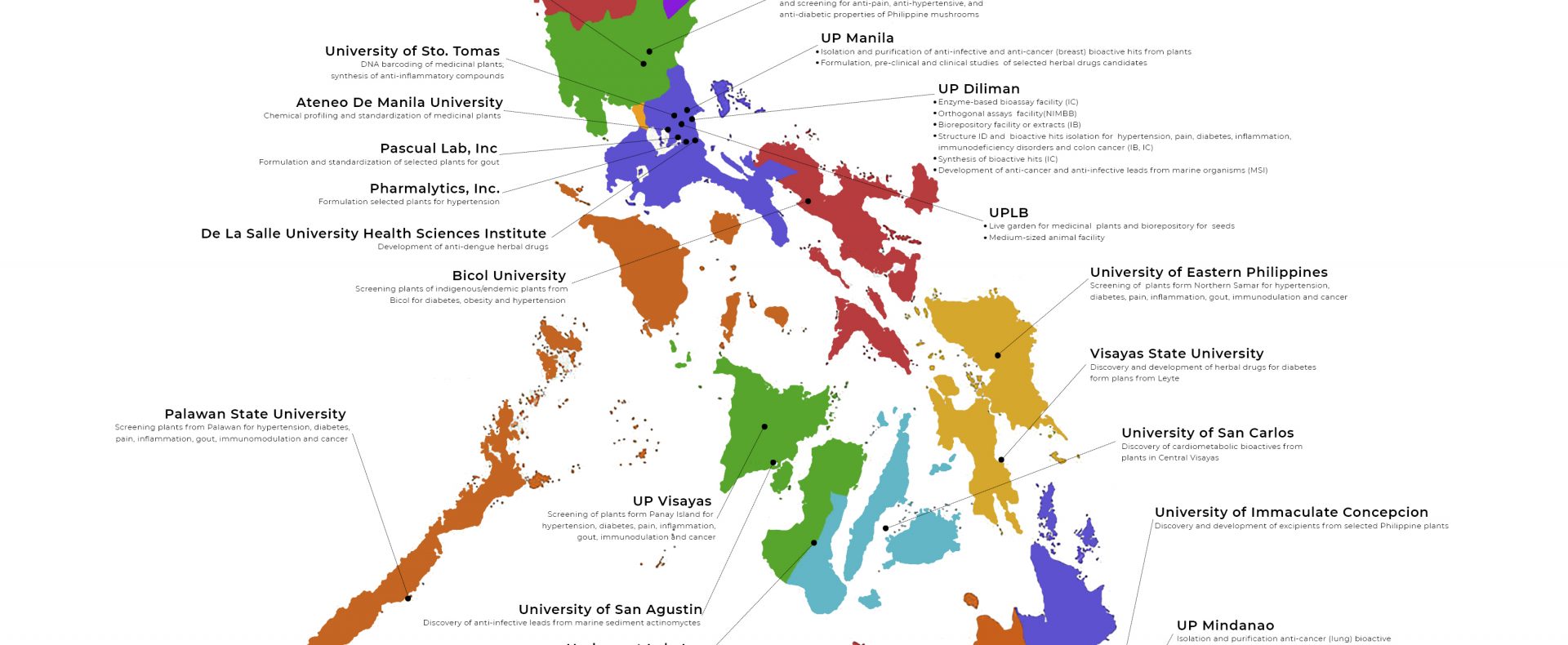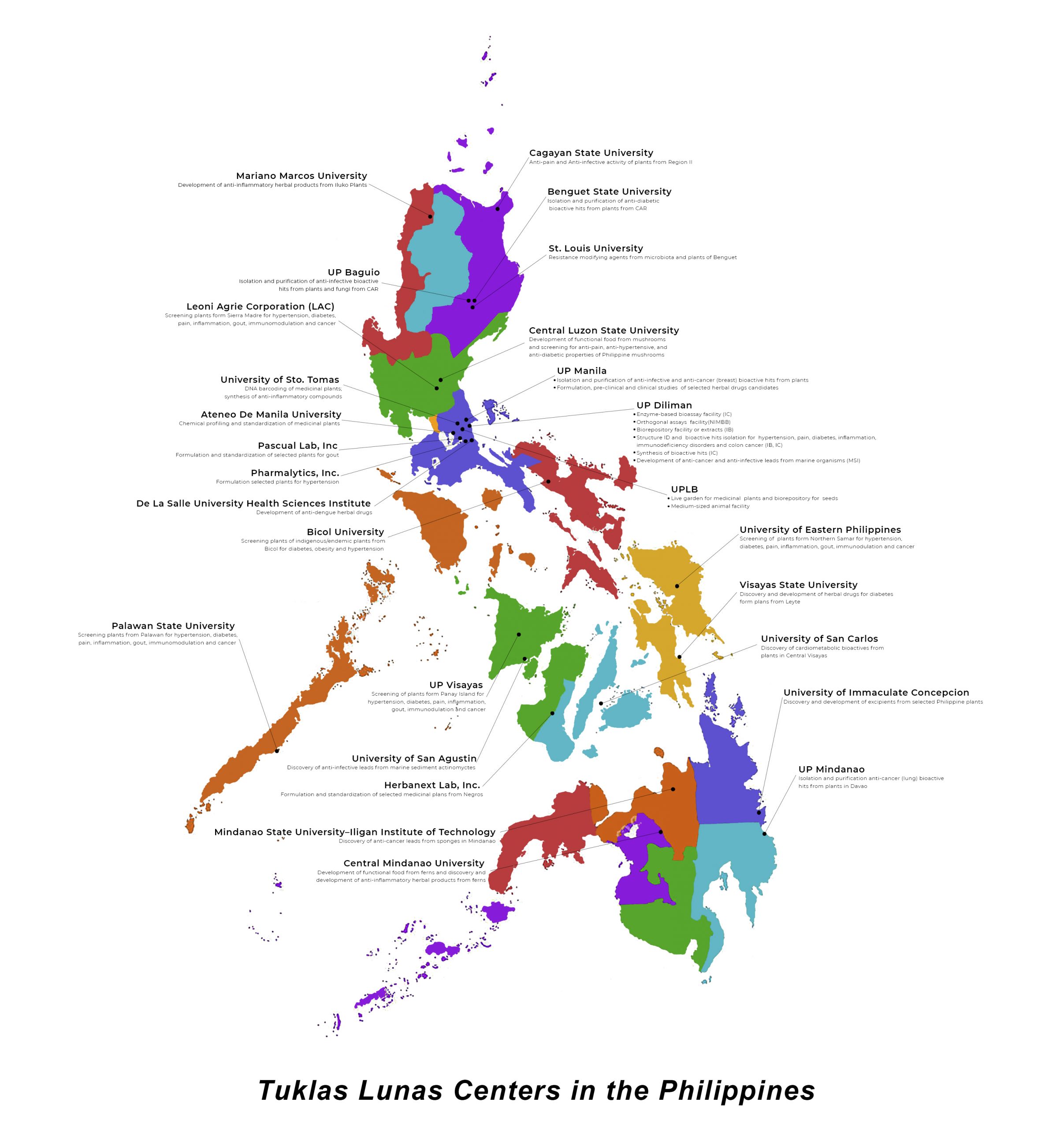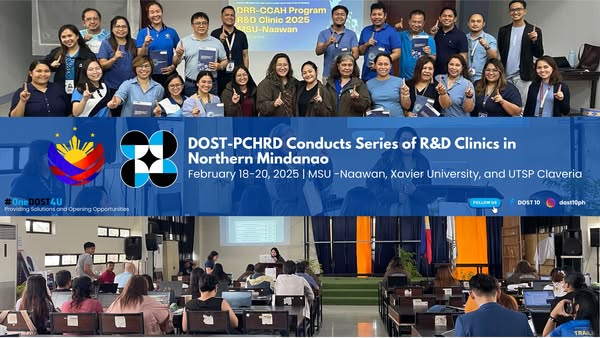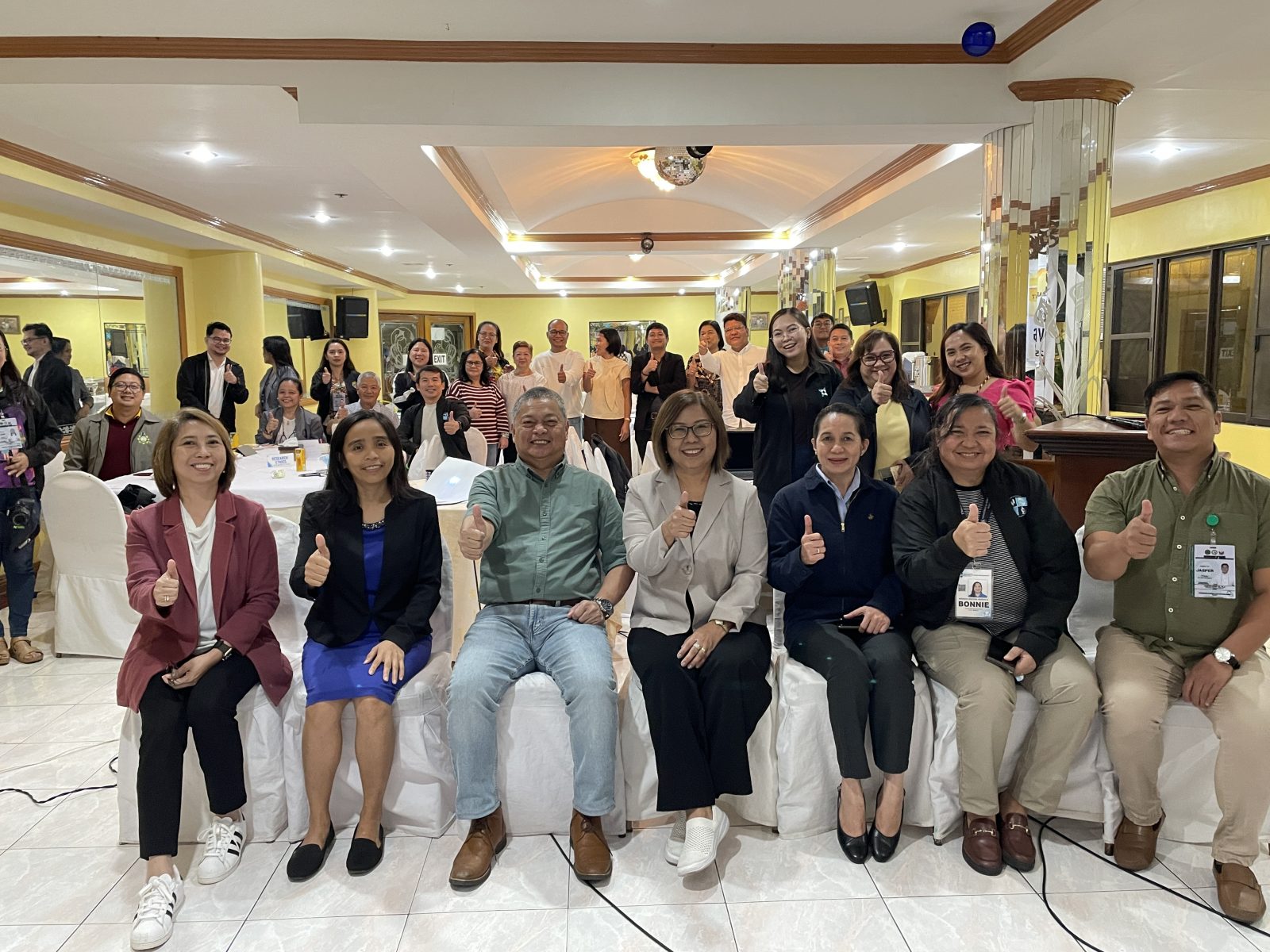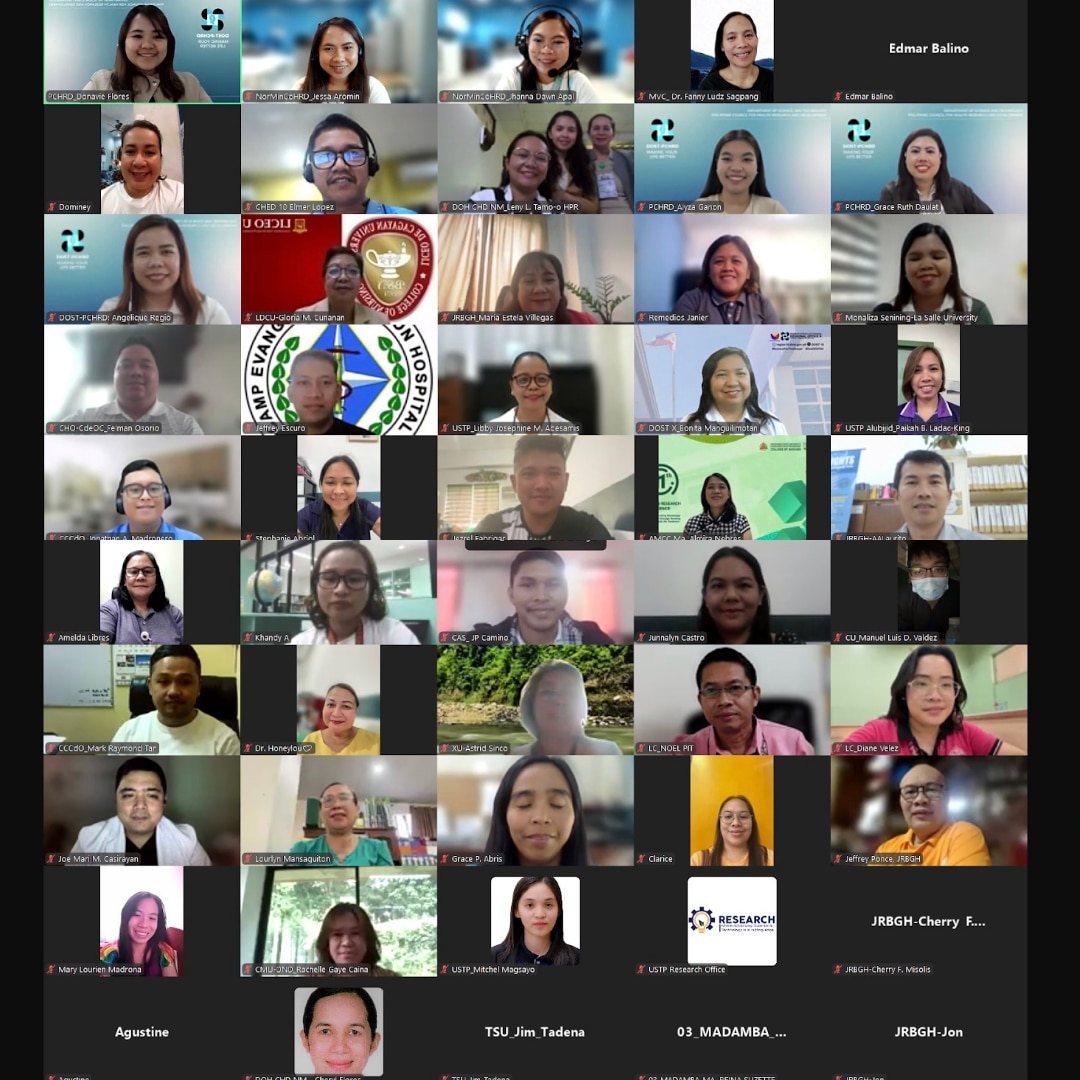Following the success brought by the lagundi and sambong medicinal products developed under the National Integrated Research Program on Medicinal Plants (NIRPROMP) of the Department of Science and Technology – Philippine Council for Health Research and Development (DOST-PCHRD), the Tuklas Lunas Program is established to pursue drug discovery and development by leveraging on the country’s very own biodiversity.
Given that most medicines available in the country are developed abroad and are distributed by multinational companies, these products are usually offered at higher prices which in turn becomes a barrier for Filipinos to access treatment. To develop drugs which are sourced locally makes them more accessible and affordable to communities. The Tuklas Lunas program aims to harness the potential of the country’s own resources under two tracks: the herbal and drug tracks. The program also aims to help strengthen the capacities of both researchers and the local industry in drug discovery and development.
In the Tuklas Lunas program, the Council partners with institutions in the regions to study the region’s biodiversity potential for drug research. The institutions’ diverse outputs are attributed to the resources peculiar and abundant to each region.
To date, the program has supported and partnered with 27 institutions nationwide for the implementation of projects addressing various stages of the drug discovery and development. Some of the most advanced projects in terms of development include the clinical trial of fixed-dose combination of three plants for management of dengue-associated symptoms by Pharmalytics Inc. and De La Salle University Health Sciences Institute; 26 plants on ongoing formulation and standardization for gout, inflammation, hypertension and blood-glucose lowering by the University of the Philippines – Manila, Ateneo de Manila University, Pascual Lab, Inc., Pharmalytics, Inc. and Herbanext Lab, Inc.; and development of functional food and herbal drug candidates from edible mushrooms and ferns by the Central Luzon State University and Central Mindanao University.
Aside from drug discovery and development, the DOST-PCHRD supports researches and projects that address the country’s most pressing health concerns outlined in the National Unified Health Research Agenda and the Harmonized National Unified Health Research Agenda (HNRDA) from conceptualization to technology transfer.





